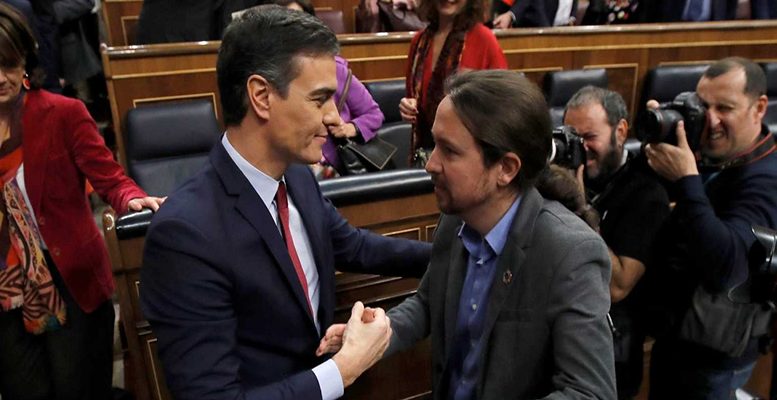Joan Tapia (Barcelona) | However, now comes the most important issue: to approve the national budget for 2020 for which it needs a vote in favour of ERC. This time the abstention of ERC is not enough, as in the case of the investiture, which was achieved in exchange for the establishment of a dialogue between the governments of Madrid and Barcelona.
And this favourable vote by ERC is not guaranteed. It is in the air. It depends on the progress of the dialogue and the political climate in Catalonia. It will depend on how the struggle for independence is conducted between ERC, which is committed to increasing support by governing the institutions and trying not to increase the conflict with Madrid, and JpC – which controls the presidency of the Generalitat through Torra – and which, on the contrary, believes that separatism should not miss any opportunity to increase the conflict with the State, provoke what they call “repression” and convince Catalans that Spain does not want to negotiate even the most minimal Catalan demands: amnesty for “political prisoners” and the referendum on self-determination.
Will ERC, which fears being accused of being lukewarm, dare to vote for the Spanish budget in the middle of the Catalan election campaign?
On the other hand, is it logical for the government in Madrid to negotiate with a Catalan government that has already declared itself in a terminal phase? Would it not be better to wait for the result of the elections that are planned for May 24 but that Torra could delay, if it were convenient for him in September?
Pedro Sánchez has hesitated, but in the end he decided to go all out and travel to Barcelona to meet with Quim Torra and set the negotiation in motion.
And the truth is that Sánchez’s trip – against all expectations – has been more successful than unsuccessful. First, because he came with a portfolio of significant issues to which the Generalitat found it difficult to say, at the outset, that it did not want to discuss. And Torra has not dared to say no to everything.
Furthermore, Sánchez has shown guts by offering a press conference at the headquarters of the Generalitat and stressing that in the last legislative elections the support for the PSOE-Podemos government (34.7% of the vote) was almost equal to that of the two formations that support the Catalan executive (36.2%).
The other positive step taken by the Government has been to make a good start with its economic policy programme, paying attention to social demands. The Government, with both PSOE and Podemos in support, has agreed with the social agents on a minimum wage of 950 euros per month, less than the 1,000 promised. But the important thing is that the pact seems to be the chosen way to start the modification of the labour reform.
And the CEOE’s desire for a pact on the minimum wage (the prelude to labour reform) has shown that the strategy of the economic right is very different from that of the political right.
The Sánchez government is weak and does not have a parliamentary majority, but for the moment the coalition with Podemos does not pose too many problems and in the social consensus and the Catalan crisis the executive has shown a capacity for pact and dialogue. This is no guarantee of anything, but it is something to be borne in mind.





